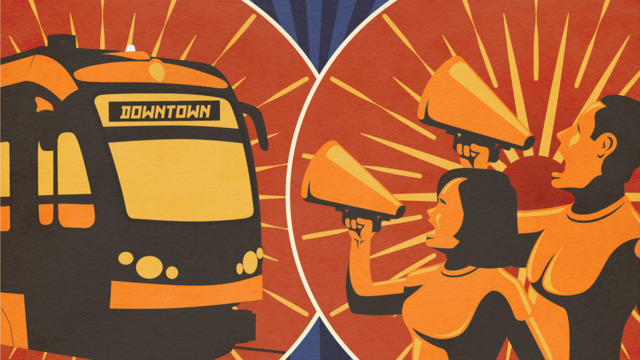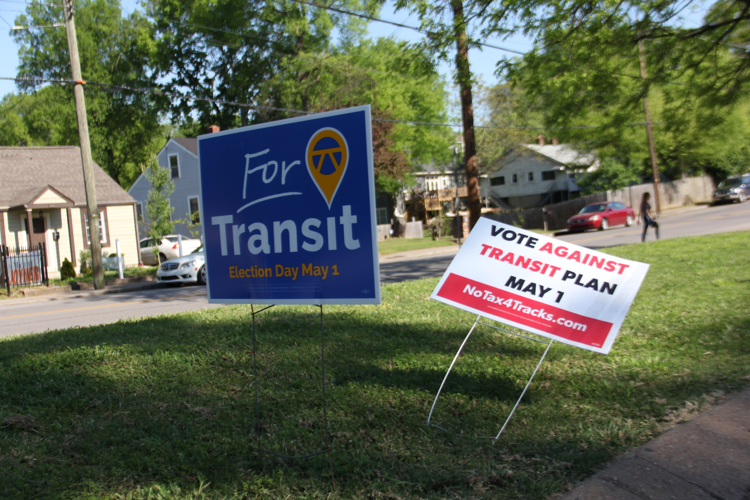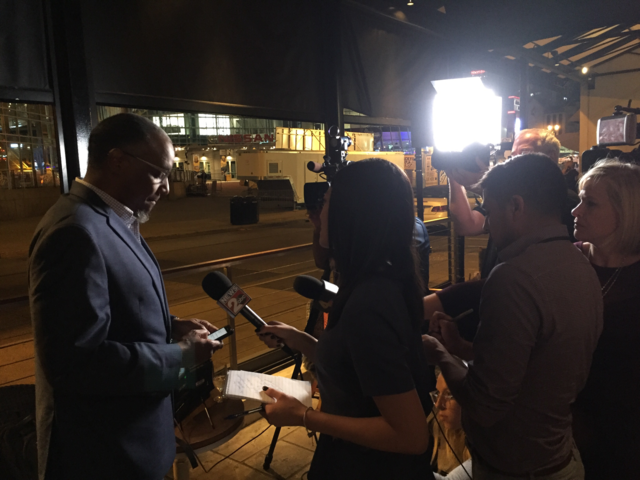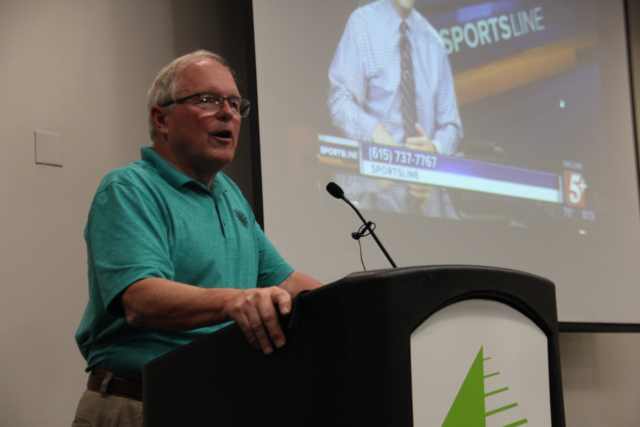The nays have it.
A majority of Nashville voters have rejected a sprawling, multibillion-dollar mass transit plan, putting the brakes on a proposal that would have significantly altered the face of the city.
The plan — which included light-rail lines on major corridors, rapid bus routes and a two-mile tunnel downtown, along with expansion of regular bus service — came with a $5.4 billion price tag for construction alone, plus billions more in operating costs. The largest civic project the city has ever proposed, it would not have been completed until at least 2032. The referendum asked voters to weigh in on Metro’s proposal to finance the plan, in large part by increasing the sales tax, hotel occupancy tax, business tax and rental-car tax.
Voters overwhelmingly said no. More than 65 percent of early voters cast a ballot against the referendum.
A little more than a year ago, then-Mayor Megan Barry stood in front of Bridgestone Arena and announced her vision for mass transit in the city, declaring that she was ready to put a shovel in the ground right then. Now she’s out of office, and the city-altering transit plan she pitched has been rejected.
Mayor David Briley, who succeeded Barry upon her resignation in March, said Nashville’s “transportation problems are not going away.”
“We all can agree that we have to do something about traffic and transportation, but voters didn’t get behind this plan,” he said in a statement. “I’ll get back to work tomorrow on finding a solution for Nashville that we all can agree on.”
Opposition to the plan came from various sides, from the NoTax4Tracks PAC backed by right-wing auto dealer Lee Beaman and fueled by dark money as well as groups like the People’s Alliance for Transit, Housing and Employment, which argued the plan would exacerbate gentrification and wouldn’t help low-income Nashvillians. While some opponents raised concerns about the disproportionate impact a sales tax increase would have on poor Nashvillians, others argued for a plan based around bus rapid transit lines instead, noting that such a plan would cost less and come online sooner.

Rev. jeff obefami carr, the leading spokesperson for NoTax4Tracks, taking questions from media at the group's watch party at the Hilton in downtown NashvillePhoto: Steven HaleAt a NoTax4Tracks gathering at the Il Mulino restaurant in the downtown Hilton, the plan’s opponents were slow to celebrate the result — some surprised by the margin, others apparently playing it cool. Shown the early vote breakdown on a reporter’s computer a few minutes after the polls closed at 7 p.m., the Rev. jeff obefami carr — the leading spokesperson for NoTax4Tracks — did a double take. After staring at the numbers for a moment, he recalled that he’d predicted earlier in the day that the opposition would reach 62 percent. In between on-camera interviews, carr — whose experience as an actor shows in his delivery, even when the remark is offhand — remembered aloud that he’d first drawn the widely shared map showing parts of town that he argued wouldn’t benefit from the plan on a Starbucks napkin. (Transit proponents called the map’s representation of the plan false.)
Nashville Area Chamber of Commerce President and CEO Ralph Schulz, in conceding the campaign at the pro-transit group’s event at the Adventure Science Center, said it could take six to 10 years before Nashville voters could see another transit plan. (Per state law, Metro can propose a new plan after 12 months.)

Ralph Schulz, president of the Nashville Chamber of Commerce, at the pro-transit watch party at the Adventure Science CenterPhoto: Stephen Elliott“The voters have obviously spoken,” Schulz said. “It is incumbent on all of us to continue to create solutions. … We still have the same issue tomorrow that we have today.”
David Fox, a 2015 mayoral candidate who lent his voice to the plan’s opponents, said as returns were still coming in that he hoped the blowout continued.
“I hope the margin stays large because it will send a clear message to the next mayor that people want improvement in transit but this is not anything close to what they want,” he said.
The dissenting vote comes just a few days before Nashvillians begin voting again, this time in the special election to replace Barry (early voting begins Friday, and Election Day is May 24). Briley was the only major candidate in the crowded mayoral race to vocally support the transit referendum.
At-large Metro Councilmember Erica Gilmore, State Rep. Harold Love and former Vanderbilt professor Carol Swain were among the mayoral candidates to oppose the transit plan.








